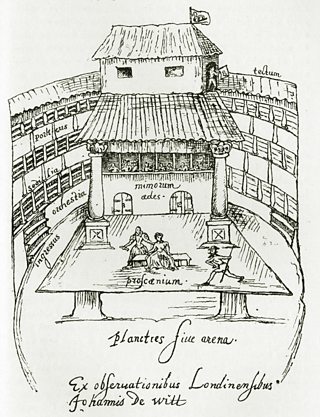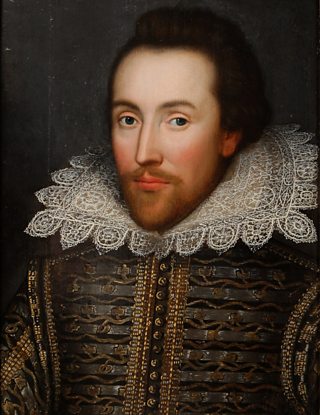Who Ruled England When Shakespeare Was Writing His Plays
Life in Elizabethan England
Elizabeth's reign was seen as a 'golden age' of culture and exploration, but society was characterised by extremes of rich and poor. An increasing population and rising poverty became a big problem.
Leisure, the theatre and pastimes

The Renaissance that had started in Europe as early as the 14 th century had led to a new flourishing of arts and culture all over Europe. England began to see a growth of the arts in Tudor times, and Elizabeth encouraged this through her patronage of the theatre, music and art. Before Elizabeth's reign, drama mainly focused on religious plays that were performed in public, and Greek and Roman dramas performed in Oxford and Cambridge universities. During the 1570s permanent groups of actors were set up under the patronage of wealthy nobles and there was even a group called Queen Elizabeth's Men set up in 1583.
Shakespeare began writing his plays during Elizabeth's reign, and a number of them had themes connected to English history. His plays always supported the monarch and the Tudor dynasty, such as his drama about Richard III who had been defeated by Elizabeth's grandfather Henry VII and was shown as an evil deformed murderer in the play.
Purpose-built theatres were encouraged and had tiered seating with prices accessible for people from all ranks of society. Many nobles protected groups of actors and became their patrons .
The queen went on tours of the country every summer, when she would stay at the homes of her wealthy nobles. These 'royal progresses' encouraged these nobles to build grand stately homes and organise lavish entertainments for the queen.
Opposition to the theatre

Not everyone approved of theatres. There was some opposition from:
- The Puritans - they believed theatres were the work of the devil, spreading rude and lewd ideas encouraging poor moral behaviour. They also associated the theatre with the Romans, who had persecuted Christians.
- The authorities - an extract from a law passed in 1572 stated that: "All common players…who wander about and have not a license shall be taken, adjudged and deemed rogues, vagabonds and sturdy beggars."
Pastimes
By Elizabeth's time the upper classes saw their culture as superior. Huge inequalities existed within Tudor society and whilst the theatre was universally popular there were two cultures:
- Higher society - the invention of the printing press and spread of education meant that gentlemen were part of an elitist culture involved in intellectual pursuits, such as reading the classics, studying music, hunting and hawking .
- Lower society - the vast majority were involved in popular cultural pursuits, which gave them a brief escape from their harsh living conditions. Inns and taverns were an important part of every social ritual. Drinking, gambling on bear-baiting, cockfighting, cards, dice and racing were popular. Tobacco smoking was new and expensive but it was growing in popularity by the end of Elizabeth's reign. Ordinary people also took part in wrestling, running races and football.
Who Ruled England When Shakespeare Was Writing His Plays
Source: https://www.bbc.co.uk/bitesize/guides/zy68tyc/revision/4
Posted by: williamsstairdle1946.blogspot.com

0 Response to "Who Ruled England When Shakespeare Was Writing His Plays"
Post a Comment